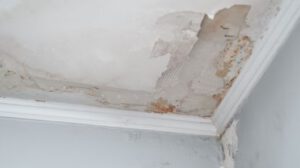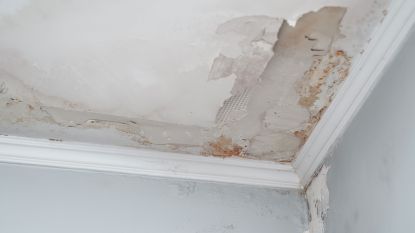Water damage is a type of loss that is the result of a water intrusion. It can cause the rotting of wood, the growth of bacteria and mold, and rusting of steel. It can also cause composite woods and other materials to swell or delaminate. If you’ve experienced a flood or any type of water damage, you can contact the experts to help you get back on your feet.

Water damage can occur from a broken dishwasher hose, a burst pipe, flood waters, building envelope failures, and clogged toilets. While water damage doesn’t have to cause a lot of damage, it can have long-term effects on your home. Untreated water damage can lead to mold and rotted wood, which can cause more expensive problems down the road. The best way to deal with water damage is to call a restoration company as soon as possible to prevent any further damage to your home.
While you’re assessing the damage to your property, you should first protect the health of those residing in the affected area. It’s a good idea to evacuate your family from the site for the moment so they don’t become sick or injured. Once you’ve done that, locate the source of the water damage and tape it off to limit its spread. Then, start restoring the property and getting it ready for sale as quickly as possible.
The most common source of water damage is inclement weather. Strong winds can blow out windows and other related fixtures. Some leaks occur behind walls and can cause significant damage before it is even noticed. Common sources of leaks include rusty pipes, high water pressure, extreme temperatures, and broken water connectors. Other potential sources of water damage are sewage backup and clogged gutters. The effects of water can vary from house to house.
A homeowner should keep a record of repairs done to the home. In case of a flood, it is best to evacuate and file a claim with the insurance company. Make sure to include the costs for living elsewhere while the damage is being assessed. You should also make sure to maintain your home on a regular basis to reduce the risk of any future damage. Small repairs done regularly can prevent large expenses from arising. Finally, it is important to choose the best insurance policy that suits your needs. You should also inquire about extra coverage options if you’d like.
While you’re cleaning up the water, mold is growing on wet materials. After twenty-four hours, wet materials will start to develop serious problems such as mold. Water damage is a serious issue that needs professional attention. It’s important to contact a professional water damage company as soon as possible. If you don’t want to do the job yourself, call your insurance company. They should be able to provide you with several options to choose from.
Insurance companies will usually pay out settlements slowly. This is because they want to make sure homeowners will properly use the money that they receive. Some homeowners have taken the money to Vegas, while others have used it to upgrade their homes dramatically. Your adjuster’s job is to ensure that you don’t do this. If you’re worried about your settlement, contact your insurance company to discuss your options. It’s important that you have a solid understanding of how the claims process works.
The first step to water damage restoration is to dry the area. This may seem easy if the leak is relatively small, but it’s essential to dry the affected area. To remove moisture from the affected area, you can use fans to circulate the air. You can also use large-capacity dehumidifiers to dry the surrounding materials. If the damage is widespread, it will take longer to dry out the building materials. It’s also important to assess any risks associated with the water.
There are many different types of water damage. Some types are relatively clean and don’t pose any health risks. Another water damage is categorized into categories that can cause a host of problems. For example, Category 1 water damage is usually caused by broken pipes, a sink overflow, or rainwater. While this type of water is not as dangerous as Category 3 water, it can cause a lot of problems for your home. The best way to minimize the risk of serious damage is to hire a professional water restoration service as soon as possible.
Although buying a home with water damage can be a risky move, it isn’t always an undesirable option. If you can get your home repaired and have the home inspector noted the water damage, it may give you leverage in the negotiating process. You can also offer a lower price to the seller if you’ve determined that the repairs can be handled quickly. Regardless of whether you’re buying a home with water damage, be sure to hire a professional home inspection before buying it.

